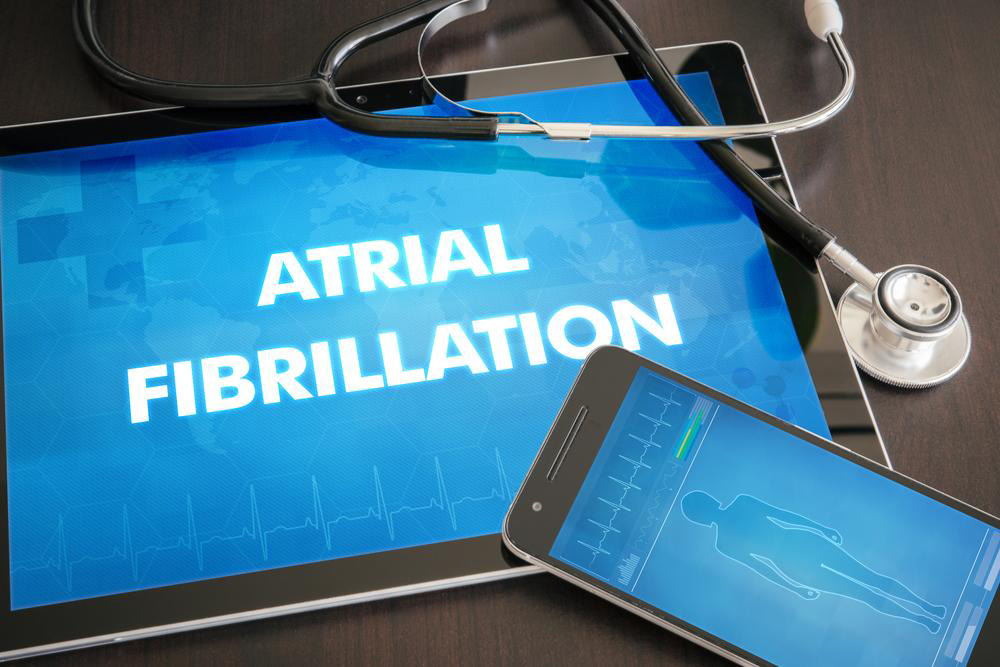Comprehensive Guide to Managing Atrial Fibrillation: Dietary Strategies and Food Recommendations
This comprehensive guide explores dietary tips and essential foods for managing atrial fibrillation (AFib). It highlights foods to limit such as salt, alcohol, caffeine, and processed fats, while emphasizing heart-healthy options like magnesium and potassium-rich foods. The article discusses dietary approaches including the Mediterranean and paleo diets, offering practical advice for reducing AFib episodes and supporting overall cardiovascular health. Proper dietary management, combined with medical treatment, can significantly improve quality of life for individuals with AFib by stabilizing heart rhythms and preventing complications.

Comprehensive Guide to Managing Atrial Fibrillation: Dietary Strategies and Food Recommendations
Atrial fibrillation (AFib), often referred to as a-fib, is a common heart rhythm disorder characterized by an irregular and often rapid heartbeat. This condition affects the heart's upper chambers—the atria—disrupting normal blood flow throughout the body. If left unmanaged, AFib can increase the risk of serious health complications, including strokes, blood clots, and heart failure. Managing AFib involves a combination of medical treatment, lifestyle modifications, and importantly, dietary adjustments aimed at supporting cardiovascular health and reducing triggers that can provoke irregular heart rhythms.
Foods to Limit or Avoid for Atrial Fibrillation Patients:
High Salt Intake
Consuming foods high in sodium is a major dietary factor that can exacerbate AFib symptoms. Excessive salt intake leads to increased blood pressure, putting additional stress on the heart and blood vessels. Elevated blood pressure is directly linked to a higher likelihood of developing or worsening AFib episodes. To support heart health, it is advisable to reduce salt consumption by avoiding processed and pre-packaged foods, canned soups, fast food, and snack items rich in sodium. Instead, flavor foods with natural herbs and spices such as garlic, basil, oregano, and lemon juice, which enhance taste without increasing sodium levels.
Alcohol Consumption
Alcohol can significantly impact heart rhythm stability. Binge drinking or regular alcohol intake can trigger episodes of irregular heartbeat, especially in individuals with pre-existing AFib. Alcohol affects the electrical signals in the heart, potentially leading to arrhythmias. For people managing AFib, it is generally recommended to limit or avoid alcohol altogether. Men should aim to restrict alcohol to fewer than 14 drinks per week, and women should keep it below 7 drinks weekly. Drinking in moderation is key, and consulting healthcare providers for personalized advice is essential.
Caffeine Intake
As a stimulant, caffeine can interfere with heart rhythm regulation. While moderate caffeine consumption might be tolerated by some individuals, excessive caffeine from coffee, energy drinks, or sodas can provoke arrhythmias and exacerbate AFib symptoms. Monitoring and limiting caffeine intake—ideally to less than 200 mg per day—can help maintain a stable heart rhythm. Paying attention to how your body responds to caffeine and discussing it with your healthcare provider are important steps in managing AFib.
Processed and Unhealthy Fats
Diets high in processed foods, trans fats, and saturated fats contribute to obesity, high cholesterol, and elevated blood pressure—all risk factors for AFib. Trans fats found in baked goods, fried foods, and snack items cause inflammation and arterial stiffness, increasing cardiac stress. To support heart health, focus on consuming healthy fats from sources like avocados, nuts, seeds, and olive oil, while limiting fried foods and processed snack items.
Adopting a Heart-Healthy Diet to Manage Atrial Fibrillation: The foundation of managing AFib through diet involves emphasizing nutrient-rich, heart-friendly foods that support proper cardiac function and reduce inflammation. Incorporating a variety of vitamins, minerals, and antioxidants can protect the heart and improve overall cardiovascular health.
Key foods to include in a heart-healthy diet for AFib management:
Magnesium-Rich Foods
Magnesium plays a crucial role in maintaining normal heart rhythm. Low magnesium levels have been linked to arrhythmias and irregular heartbeat episodes. Including magnesium-rich foods such as nuts (almonds, cashews), leafy greens (spinach, kale), avocados, yogurt, and whole grains can help regulate heartbeats and prevent AFib episodes. Ensuring adequate magnesium intake is vital, especially for individuals prone to arrhythmias or on medications that deplete magnesium levels.
Potassium-Rich Foods
Potassium is essential for proper muscle function, including the muscles of the heart. Maintaining balanced potassium levels can help prevent abnormal heart rhythms. Incorporate foods such as bananas, oranges, sweet potatoes, tomatoes, and dried fruits like prunes and apricots into your diet. Consuming potassium-rich foods aids in stabilizing heart electrical activity and reducing the risk of AFib episodes.
Dietary strategies and approaches beneficial for AFib management include:
Mediterranean Diet
Emphasizing whole, minimally processed foods, this diet is known for its heart-protective effects. It involves high consumption of fruits, vegetables, whole grains, lean proteins like fish and chicken, and healthy fats from olive oil and nuts. Moderate coffee and tea intake are considered safe and may even be beneficial. The Mediterranean diet reduces inflammation, improves lipid profiles, and supports cardiovascular health, making it suitable for AFib patients.
Paleo Diet
Based on the eating patterns of ancient humans, the paleo diet emphasizes unprocessed foods such as fresh meats, fish, fruits, vegetables, nuts, and seeds. It excludes processed foods, grains, and dairy products, which can contribute to inflammation and metabolic issues. For AFib management, this diet can help reduce processed food intake and promote overall health.
Gluten-Free Diet
For individuals with gluten sensitivities or celiac disease, avoiding gluten can reduce systemic inflammation and improve overall health. Some studies suggest that a gluten-free diet may help decrease AFib episodes by reducing inflammation. However, consulting a healthcare professional before starting this diet is crucial, especially for those with known gluten allergies or sensitivities.
It is important to work closely with healthcare providers to tailor dietary strategies suitable for individual health conditions. Regular monitoring, combined with medical treatment and lifestyle modifications, can substantially improve heart function and quality of life for those with AFib.





